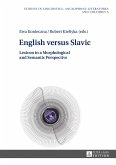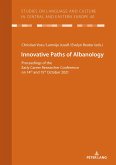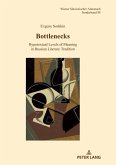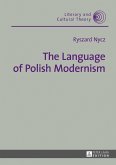John of Damascus is one of the most remarkable figures among the Church Fathers. The reception of his theological and philosophical works among the Orthodox Slavs in the Middle Ages has been comparatively well researched - unlike that of his homiletic works. This book is devoted to four Slavonic translations of three homilies of John of Damascus dedicated to the Mother of God. It offers the first comprehensive, complex study of the translations of John's First and Third Homilies on the Dormition and his Homily on the Nativity of the Mother of God, preserved in South Slavic hagiographic and homiletic collections. The problems related to the textual tradition and translational peculiarities of these works have a central place in this study. It is supplemented with an edition of the Slavonic translations with parallel Greek text, as well as with a Slavonic-Greek and Greek-Slavonic list of content words.
Hinweis: Dieser Artikel kann nur an eine deutsche Lieferadresse ausgeliefert werden.
Hinweis: Dieser Artikel kann nur an eine deutsche Lieferadresse ausgeliefert werden.








